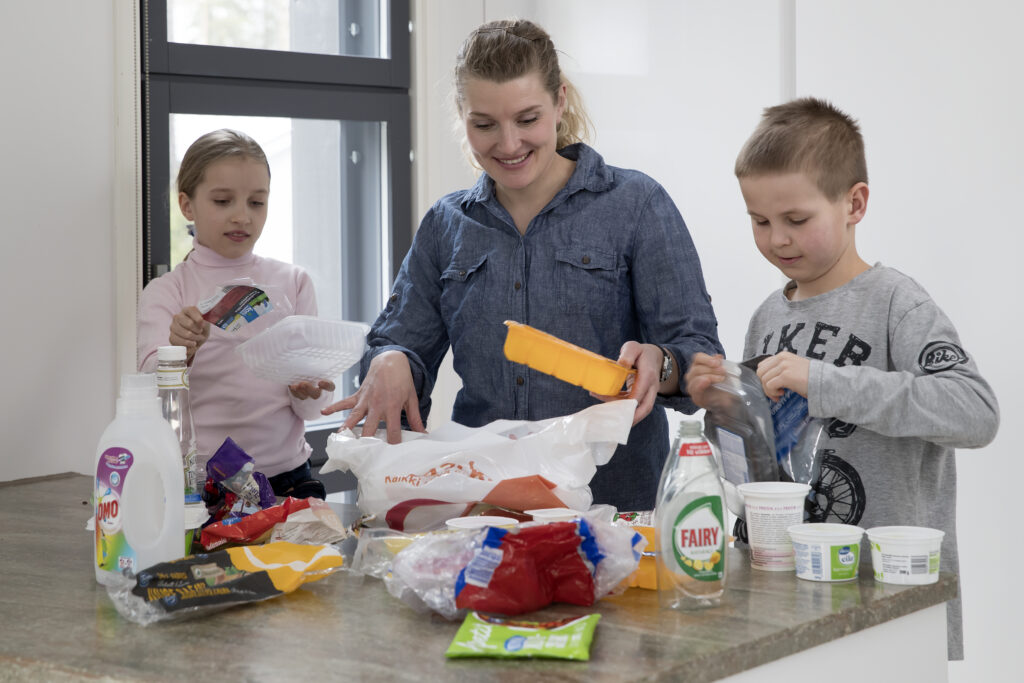The sorting point being too far and the kitchen lacking space are the most notable reasons for Finns to neglect separating plastic packaging from mixed waste. Many mistakenly believe that collected plastic packaging is ultimately incinerated. Gender and residence also impact waste sorting attitudes and willingness. Producer responsibility organisation Sumi, Borealis, Neste and the Finnish Plastics Industries Federation worked together with VTT to determine the issues that households are having with sorting plastics.

Increasing the collection rate of plastic packaging is important for both society and the environment. Packaging plastics are valuable and should be primarily recycled. At the moment, the separate collection rate for plastic packaging in Finland is roughly 45%, which means that more than 50% ends up outside the collection system for plastic packaging.
The study carried out by VTT examined the sorting attitudes of consumers. The survey was responded to by 1,000 Finns. In addition to the lack or distance of collection points, the most common reasons for neglecting the sorting were found to be the lack of space for storing the waste at home and the perceived difficulty of the sorting. Based on their attitudes, the respondents fell into four groups:
11% of Finnish respondents were committed to sorting. The group mostly consisted of slightly older women with established sorting habits. They are supported by strong communal commitment. They have a strong environmentally positive identity and personal sense of responsibility.
The moderately positive group included 33% of Finns, and this group, too, mostly consisted of women of various ages (76%). The people in this group are moderately willing to sort waste. They are fairly motivated and supported by their families and friends. They also feel strong regret for neglecting to sort plastic waste and for others failing to sort waste types.
More than half of the respondents fell into the low commitment (29%) or even limited (27%) group in terms of sorting. In both groups, the proportion of men was high: 72% of the low commitment group comprised men of various ages, while 78% of the limited group were younger male consumers. The limited group demonstrated a clear lack of the skills and motivation to sort plastic waste. Environmentally friendly practices are not found to be enticing, and the group is not supported by a social environment that would promote positive recycling behaviour.
The aim of the study was to determine the obstacles to sorting in order to reduce them.
“Limited space for sorting waste is a challenge in many homes. It would probably be easier to affect it through new services rather than increasing awareness and competence. Moreover, the need for education in terms of attitudes seems to persist,” says Anu Seisto of VTT, who led the study.
People who live in apartment buildings are the most diligent sorters
People who live in apartment buildings tend to sort plastic packaging more effectively than those who live in terraced or detached houses, which is likely to be due to the close proximity of the collection containers. This is also a likely reason for sorting activity being higher in cities than in rural areas. According to the study, the most committed sorters live in Southern and Western Finland.
“The motivation to sort plastic waste is naturally lower in areas where the collection system is lacking. Sumi is working to improve the collection system and rectify any shortcomings to make the network as comprehensive as possible throughout Finland. Correspondingly, we are increasing consumer awareness to show that sorting plastic packaging is beneficial, and the recycling process actually works,” says Mika Surakka, CEO of the Sumi producer responsibility organisation.
The study also indicated that consumers with a lower income level are more eager sorters than more affluent consumers. Some consumers clearly lack knowledge and skills.
“The efficient collection, sorting and recycling of plastic waste can help replace the use of fossil raw materials. One of the main goals of the SPIRIT programme led by Borealis is to increase the recycling rate of plastics in Finland, which requires increasing the recycling volumes. For this reason, we hope that more and more people want plastic packaging to be recycled and therefore sorts their waste,” says Jaakko Tuomainen of Borealis, which manufactures plastic granulate.
The survey was responded to by 1,000 Finns. The survey materials were nationally representative based on age, gender and place of residence in the age group of 18–75. The survey materials were collected through Bilendi Oy’s online panel.
More information:
Mika Surakka
Managing Director
Sumi Oy
mika.surakka@sumi.fi
Tel. +358 400 197 848
Anu Seisto
Research Team Leader
VTT Oy
anu.seisto@vtt.fi
Tel. +358 40 5471 609
Jaakko Tuomainen
SPIRIT Programme Manager
Borealis Polymers Oy
jaakko.tuomainen@borealisgroup.com
Tel. +358 50 379 4525